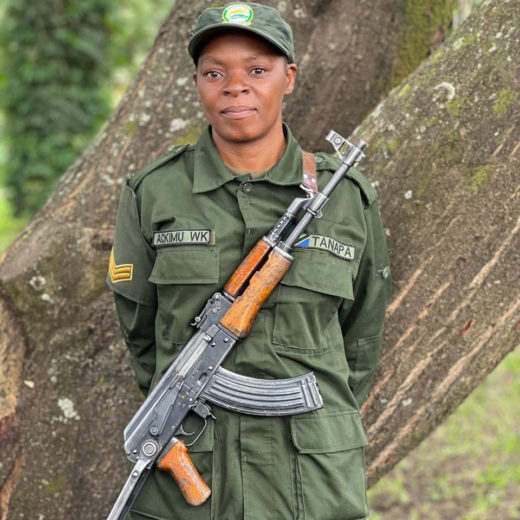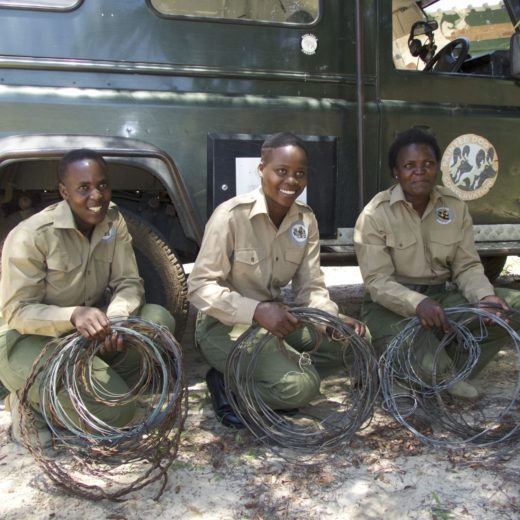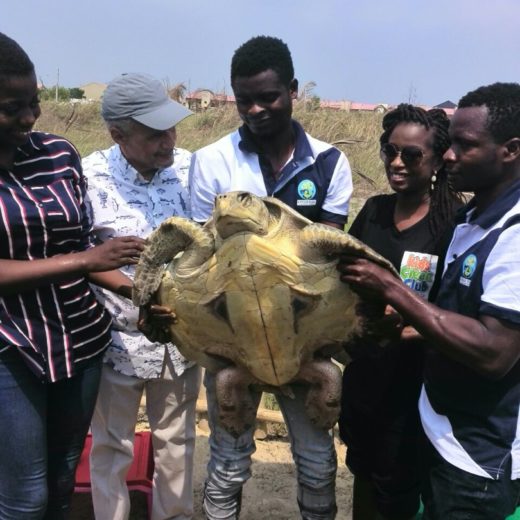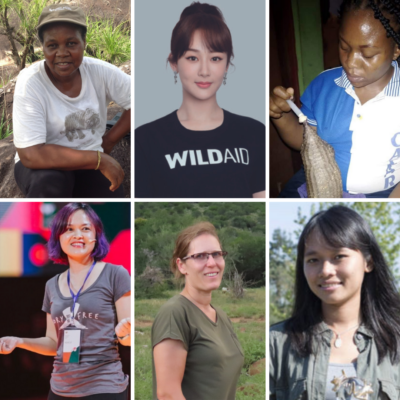
This International Women’s Day and throughout March, WildAid is shining a spotlight on some of the incredible women in conservation who are working tirelessly to protect wildlife across Africa and Asia.


Ricardina Guivala Matusse has been the first female park warden working in both terrestrial and marine protected areas, for the past 21 years. She has been a warden of Primeiras e Segundas Environmental Conservation Area (PSEPA) in Maputo, Mozambique, since 2019. Prior to becoming a champion of the protection of wildlife, she had a career in forestry for 10 years. Due to the lack of women working in wildlife conservation, the National Directorate of Conservation Areas invited Ricardina to study at Mweka Wildlife college in Tanzania, where she became one of the first women in wildlife conservation in Mozambique.
She has a passion for working with local communities who live inside the buffer zones of protected areas, and wants girls who are considering a career in conservation to be confident and not be afraid of taking action and responsibility.
“Women working in wildlife conservation face many challenges. It is difficult to work far away from my family, there is also a lack of credibility from men towards female conservationists, and women get very few opportunities,” says Ricardina.
“I’d like to tell you about what happened to me the first time when I was a warden in Zinave National Park. I traveled to the park in the back of a vehicle with other male rangers. One of the rangers then said, ‘I don’t like to be led by a woman.’ From that experience, I gained courage to stand up for myself and to change the mind of male rangers concerning women in leadership positions.”
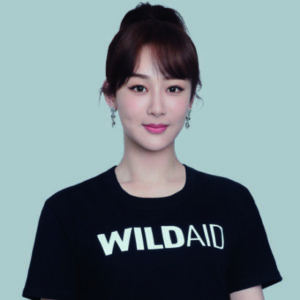

Yang Zi has been a WildAid Ambassador in China since 2019. In 2021, she led the COP15 Conservation Biodiversity Campaign, helping to educate the public on the serious consequences of biodiversity loss and calling on the public to take action to protect biodiversity by saying no to illegal wildlife trade.
She also lends her voice to WildAid’s elephant program by starring in the ‘Be Their Role Model’ campaign which asks parents to use their actions to set good examples for the next generation by not consuming ivory and other wildlife products.
“We should do our best to protect nature and its wildlife, so that children have the opportunity to discover and enjoy the wild beauty of nature. This is the most precious gift we can leave them,” said Yang Zi.


Dr. Okolo Calista Obianujunwa is known as “Pangolin Mother.” She’s a veterinarian from Nigeria working at SaintMark’s Animal Rescue Foundation both as a wildlife enthusiast and a conservationist. She treats and cares for animals, including fostering of orphaned animals ranging from civets to genets, as well as antelopes, turtles and pangolins which has been the major part of her work.
“I started my career as a veterinarian, but working with Dr. Mark Ofua has guided me into the conservation field. By working with Dr. Mark I understand now that conservation is a collective effort and cannot be done alone. The smallest conservation effort makes a whole lot of difference. And this was my drive to join the ‘army of conservationists’, who are out there preaching and spreading the good news of conservation,” says Dr Okolo.
In Nigeria, conservation is mostly regarded as a man’s job, says Dr. Okolo. Women are sometimes regarded as being weak and unable to do the hard work required. “The public needs re-orientation that women have a role to play in conservation, especially given the fact that the natural instinct of nurture always kicks in at all times. My advice to young girls thinking of following the path of conservation for a career is that the field of conservation is wide and can contain as many people who are willing to be part of it as possible. It is a career path that can never get overcrowded and as the saying goes ‘There is strength in numbers’ and ‘The more, the merrier’.”


Hong Hoang is a climate hero and wildlife protector in Vietnam. Hong leads WildAid Vietnam and is the founder of Center of Hands-on Action and Networking for Growth and Environment (CHANGE), a non-profit that aims to promote and encourage the care and preservation of the environment through education and innovative communications that change habits inspire community action in Vietnam.
Among her many life accomplishments, Hong is:
The first Vietnamese to set foot on the Antarctic Peninsula after participating in the UNESCO expedition team of 35 youth from 25 countries.
The only Vietnamese out of 12 outstanding civic leaders selected from 12 countries participated in the first Obama Foundation Scholars Program at Columbia University in 2008.
Recognized by Forbes Vietnam as one of the top 50 most influential women in the country.
When asked why she decided to work in environmental and wildlife conservation issues, Hong says “I’d rather light a candle than sit there and curse the darkness.”


Penny Pistorius is an ecologist at Mount Camdeboo Private Game Reserve in South Africa. She monitors wildlife, collects data, does introductions of new animals, and looks after animals in bomas before their release.
Penny’s love for nature and wildlife developed at a young age when she was growing up on a farm and spent a lot of time out in nature. “It is in nature that I feel at home. I have a deep desire to help protect wildlife and conserve natural environments. I have tried various careers, but I keep coming back to nature. That’s where my heart lies.”
One of Penny’s most memorable experiences working in wildlife conservation has been translocating elephants, spending days and nights trying to stop elephants from breaking fences in the reserve. “Some of my happiest experiences have been getting to know individual wild animals over the course of a number of years working in the same area.”
“We need more women to follow careers in conservation. It is still a largely male-dominated sector, and it can be tough for women to be taken seriously. There is a need for more opportunities for women, and we need to break down the gender bias.”
Penny believes that if we don’t protect and conserve what’s left, we can lose it all, including ourselves. This is not just physically, because of the life-giving services that nature provides, but we will lose our connection to life. Every species has a role to play to keep ecosystems functioning.


Trang Nguyen is working to end illegal wildlife trade in Vietnam and Internationally, with a focus on bears, birds, and education programs. At a young age, she witnessed the harvesting of bile from a live bear to be used in Traditional Asian Medicine. Since then, she decided to start the NGO WildAct focussed on monitoring the international wildlife trade.
Trang now devotes her time to researching and monitoring the markets for illegal wildlife products. Her research on the demand for wildlife products has taken her across continents and contexts, from Asia to Africa.Besides research, Trang and her team also invest in educating and raising awareness on this subject among Vietnamese youth.
Through their training programs, Trang and her team are building the capacity of Vietnam’s wildlife conservation sector. This way, they hope to change the behaviors of current and future consumers of wildlife products. And more recently, WildAct was awarded with the USAID Rise Challenge to end Gender Based Violence and Gender Inequality by empowering women in the nature conservation sector.
Stay in touch and get the latest WildAid updates.
SIGN UP
